
Pick up a skincare product, and you’re likely to find several certifications on the packaging. Many of them will be sustainability certifications–but how do these actually work? It’s very easy to get caught up in so many symbols and certifiers, but how can you figure out what these certifications really mean? Does a brand need to have a certification to be sustainability-focused? To help you figure it out, we’re digging deep into the world of sustainability certifications in cosmetics–we’re bringing you some answers, and plenty of questions too!
On this post:
- What are sustainability certifications in cosmetics?
- Who can get certified?
- What are the advantages of certifications?
- What are the disadvantages of certifications?
- Sustainability certifications vs “real” sustainability
- Does a product need to be certified to be sustainable?
- Can sustainability certifications be used to greenwash?
- What are the best sustainability certifications in cosmetics?
What are sustainability certifications in cosmetics?
Certifications–and this holds for any type of certification–are a process that guarantees that a certain product or company abides by the standards of a certifying body or entity. To get certified, a company must submit to an investigation by a third-party player, who will look into whether the company is actually doing what it says it’s doing. If the company follows the pre-established criteria of this third-party player, it gains the right to use their seal or stamp on their communication for a set period of time (which they can renew). Regarding sustainability, the process of certification can look into all sorts of aspects, from materials and packaging to wage distribution or efforts to reduce the company’s overall environmental impact.
Let’s say, for example, that a company wants to use the Ecocert COSMOS seal on their packaging. Firstly, the company has to pay a fee to the certifier body to start the certification process. Then call in the certifier company (usually through a verified auditor), submit every required document, and then undergo a series of audits to ensure it complies with the criteria of Ecocert COSMOS. If everything is as it should be, the company will pay for the certificate and can use the seal on its products.
Who can get certified?
Any company can get certified, as long as they’re willing to pay the certification fees and follow the criteria established by the certification process. The standards vary for each certification, so the company must be focused on complying with them.
What are the advantages of certifications?
The first big advantage of undergoing sustainability certification is that a company’s sustainability claims are verified by a third party. This ensures that someone outside the company itself is looking into their claims–and verifying if they are true. Secondly, if you as a customer know the meaning of certifications, it’s easier to invest in companies that align with your values. This is important because it’s very hard as a consumer to know how to make more sustainable choices. In fact, many indie cosmetics companies that are very focused on being sustainable have several of these certifications. This way, they make sure the consumer is immediately informed of the brand’s sustainability stance, even if they don’t know the brand.
What are the disadvantages of certifications?
No certification tells you everything about a company’s sustainability practices. Sustainability in cosmetics is extremely complex and has several layers. If a certification focuses only on one of them, is the company actually sustainable just because it has a seal of approval? No. It just tells you that it follows those standards.
Moreover, some certifications that are commonly associated with sustainability have nothing to do with it. Organic, natural, or vegan certifications do not make a product more sustainable. But oftentimes they’re used as a way to make it look like they are. The only way for you as a consumer to understand if the certification aligns with you is to understand what each certification means. That is very hard and demands that you study each certification–that’s why we’ve created a summary for each certification. If you want to get the full picture without investing days in researching, just keep on reading!
Sustainability certifications vs “real” sustainability
We’ve mentioned above that a certification badge or seal can’t tell you everything there is to know about a company’s environmental commitment. In that sense, it’s important to understand that certifications are not the end-all and be-all of sustainability:
Does a product need to be certified to be sustainable?
No, a product does not have to be certified in order to be sustainable. Sustainability certification processes are usually slow and expensive, so many companies that could be certified choose not to because it’s not their priority. Certifications are totally non-mandatory and only a nice-to-have that instantly tells the customer that the company follows certain standards. Many companies that are sustainability-focused decide to invest their money in their sustainability programs instead of certifications–and that’s totally ok. In these cases, a look into the company’s sustainability report will still give you a glimpse of what the company is doing. However, these reports are not reviewed by external agents, so the company may not be telling the whole story there.
Can sustainability certifications be used to greenwash?
You may find some people who claim that certifications only exist to greenwash. We don’t share that opinion, but we do recognize that certification is a business and, as with any business, it has deep flaws. That being said, some companies may use these certifications to greenwash their sustainability efforts. How? For example, a company may be so focused on obtaining a certain certification that it focuses all its efforts on this process, instead of striving to be truly sustainable. In a situation like this, where a company focuses on just one front with the sole intention of obtaining a certification and using it as proof of its sustainability cred, it’d be appropriate to call out greenwashing.
Our recommendation here is to make sure the company is not only relying on one certification. Again, reading the company’s sustainability report is always a good idea. This way, you’ll understand what the company is doing globally.
What are the best sustainability certifications in cosmetics?
We’re taking a dive into the most common sustainability certifications. As you will notice, we haven’t included certifications for vegan or organic cosmetics (with one exception), because those are not synonymous with sustainability:
Ecocert COSMOS
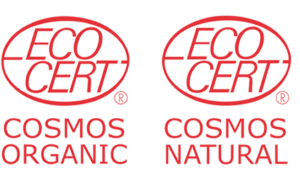
We’ll start with the exception to our criteria of not including organic certifications. Ecocert COSMOS certifies products that are natural and/or organic (in short: they offer two different certifications). Neither of them will make the product more sustainable. However, there are a few differences in this certification to other organic ones. Firstly, it promotes the use of green chemistry, which is focused on developing sustainable alternative technologies. Secondly, it promotes the responsible use of resources with minimum impact for both nature and people. As far as organic and natural certifications go, this one is the one that is mostly focused on actual sustainability.
EU Ecolabel
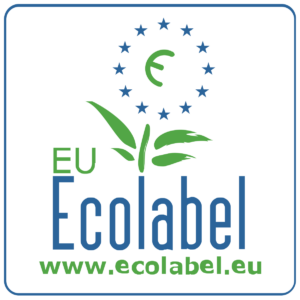
This European sustainability certification ensures that companies abide by Regulation (EC) No. 66/2010 of the European Parliament and of the Council. Certified companies must consider sustainability factors when developing their products, as well as ethical and social criteria. The aim of these standards is to reduce the impact of products throughout the entire production cycle. At the same time, the company should also focus on the people working for them and ensuring ethical and social good practices.
FSC
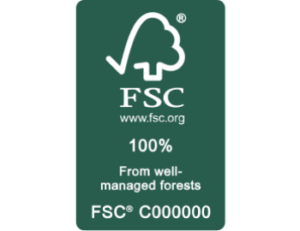
Even though FSC doesn’t relate directly to cosmetics, a lot of them use paper packaging. And here is where the FSC enters. It promotes the responsible use and sourcing of the world’s forests. Consequently, if a package contains this symbol, you know that it has been achieved using good forest management practices (or recycling) with transparent supply chains.
Climate Neutral
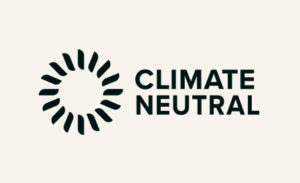
The idea behind Climate Neutral is to eliminate greenhouse gases, responsible for damaging the environment and contributing to climate change. However, measuring carbon emissions can be tough, so the organization provides tools to help measure them. Only by measuring emissions can one cut them by half as it should be by 2030. This way, Climate Neutral hopes to contribute to more people searching for net-zero companies and stimulating more companies to become net-zero.
Cradle to Cradle Certification
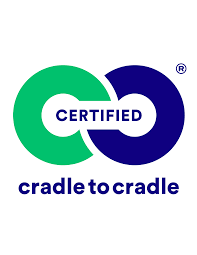
Designing a product to be sustainable is the first step to achieving sustainability. The Cradle to Cradle Products Innovation Institute has been helping brands design and optimize materials so that they are the most sustainable option. It covers a large range of issues, namely renewable energy and carbon management, material health and reuse, water stewardship, and social fairness. The main idea is to promote responsibility, safety, and circularity of products and goods, thus ensuring minimum waste.
Fairtrade
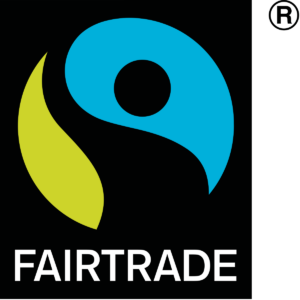
Fairtrade connects small-scale farmers and workers with companies in need of their produce. Besides this, it ensures that those workers and farmers are paid a fair price for their products, enabling them to ensure a living wage. Moreover, it bans discrimination, forced labor, and child labor practices. On top of that, it also includes the Fairtrade Premium, an extra sum of money to be invested in the community those workers are part of, enabling them to access sanitation, education, and other basic rights. Getting products with Fairtrade ingredients is a great way to know you’re investing in small communities without exploiting them.
B Corporation
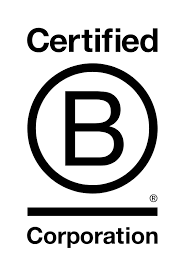
B Corp is considered by many to be the gold standard of sustainability. Even though it doesn’t solve all problems, it’s a very inclusive certification. It includes everything from environmental efforts to social and ethical stances. The idea is to change society one company at a time. We’re talking about structural social and economic inequality; environmental degradation and resource extraction; and the decline of individual well-being and loss of social cohesion.
1% for the Planet
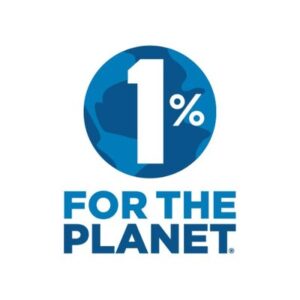
The theory of 1% for the Planet is easy to understand: donate at least 1% of sales to approved environmental causes, get those donations verified, and get the certification. The idea is to get the money where it’s most needed and stimulate companies to donate to environmental causes. Companies that have this certification are making an effort to contribute to the solution of climate change. And they’re doing it by putting the money where it’s most likely to help change happen.
As you can see, the world of sustainability certifications is hard to understand and navigate. As with any other business, it has its flaws, but it can also contribute to actual change when done right.
If you’re looking for sustainability-certified cosmetics, we invite you to drop by the shop, where you’ll find our selection of sustainable products. We’ve organized them by category, so you’ll be able to find exactly what you need using our product filters. Want to find B Corps? We’ve got you. Looking for sustainable brands with a serious environmental commitment? Say no more! And yes, we did read all the companies’ sustainability reports to build these filters. Browse away!
Pharmacy Technician & Beauty Writer


